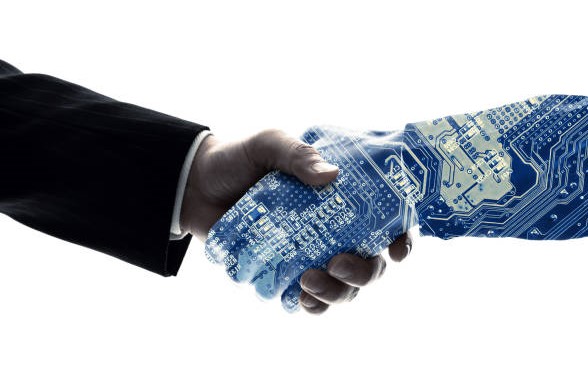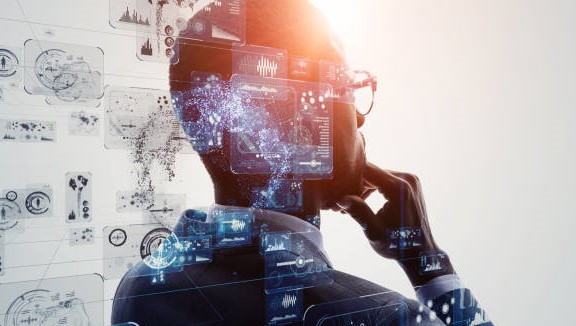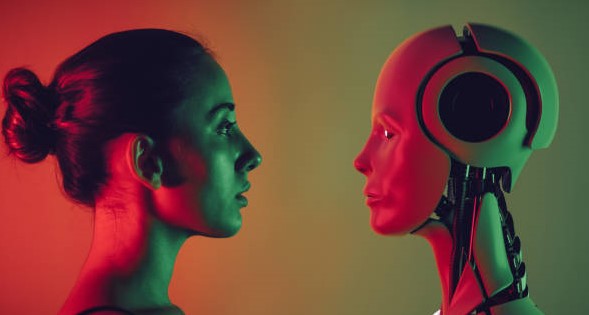The world of work is changing faster than ever before. Artificial intelligence is behind many of these changes, creating new opportunities and challenges for human workers. How will AI affect the jobs that humans do and the skills that they need? Will humans be able to keep up with AI or will they be left behind? Who will have the upper hand in the job market of the future: AI or humans?
This article will examine the impact of AI on the job market, the abilities and talents that humans need to excel in the era of automation, and the ways that workers can prepare themselves for the future. We will also discuss some of the moral and social issues that AI raises for human society and how we can ensure a just and equitable future for everyone.
The Impact of AI on Jobs and Skills
There is no simple answer to these questions, as different sectors and occupations will be impacted differently by AI. Some jobs may be eliminated or reduced by AI, while others may be augmented or created by AI. Moreover, the effects of AI will depend on various factors, such as the level of education, the type of skills, the nature of tasks, and the availability of data.
According to a report by the World Economic Forum (WEF), by 2025, AI will create 97 million new jobs but also displace 85 million existing ones. This means that there will be a net gain of 12 million jobs due to AI, but also a significant shift in the skills and roles required by the labor market. The report also suggests that by 2025, 50% of all employees will need reskilling, as the core skills required for most jobs will change.
The WEF report identifies three categories of skills that will be in high demand in the future: data and AI skills, critical thinking and problem-solving skills, and social and emotional skills. Data and AI skills are essential for developing and managing AI systems, as well as for analyzing and interpreting data. Critical thinking and problem-solving skills are important for adapting to changing situations and finding innovative solutions. Social and emotional skills are vital for collaborating with others and expressing empathy and creativity.
For example, data scientists and machine learning engineers are among the fastest-growing occupations in the US, with a projected growth rate of 15.3% and 32.9% respectively from 2019 to 2029. These roles require a combination of technical skills, such as programming languages, statistics, and algorithms, and domain knowledge, such as business acumen, industry trends, and customer needs.
Similarly, critical thinking and problem-solving skills are crucial for roles that involve complex decision-making, such as managers, consultants, lawyers, and doctors. These roles require the ability to analyze multiple sources of information, weigh pros and cons, identify assumptions and biases, and generate alternatives.
Social and emotional skills are also key for roles that involve human interaction, such as teachers, nurses, salespeople, and customer service representatives. These roles require the ability to communicate effectively, build rapport, understand emotions, and resolve conflicts.
The Advantages of Human Intelligence over Machine Intelligence
Therefore, to succeed in the job market of the future, humans will need to leverage their unique strengths and abilities that complement AI, rather than compete with it. Humans have the advantage of being able to learn from diverse experiences, communicate effectively, and generate novel ideas. These are the skills that will make humans irreplaceable by machines.
AI is not a threat to human workers, but an opportunity to enhance their potential. By embracing lifelong learning and reskilling, humans can prepare themselves for the new roles and tasks that AI will create. By collaborating with AI, humans can achieve higher levels of efficiency and innovation. By harnessing the power of AI, humans can shape a better future for themselves and society.
For instance, ChatGPT is an AI language model that excels in content creation. It can generate high-quality text on a wide range of topics, including news articles, blog posts, product descriptions, and marketing copy. However, ChatGPT cannot replace human writers entirely. It still needs human guidance to ensure that the content is relevant, accurate, coherent, original, and engaging. Human writers can use ChatGPT as a tool to assist them in generating ideas, outlines, and drafts, but they still need to edit, revise, and polish the final product.
Similarly, AI can help human investors make better decisions by providing data analysis, market insights, and risk assessment. However, AI cannot replace human judgment, intuition, and ethics. Human investors can use AI as a tool to enhance their performance, but they still need to consider factors such as values, goals, and preferences. Human investors can collaborate with AI to optimize their strategies, but they still need to follow ethical principles and regulations.
Thoughts
AI vs humans is not a zero-sum game, but a win-win scenario. AI will not replace human workers, but augment them. AI will not eliminate human skills, but enhance them. AI will not diminish human value, but empower it. The future of work is not a competition between AI and humans, but a collaboration between them. The key to success is to embrace AI as a partner, not a rival. By doing so, humans can unlock their full potential and create a better world for themselves and society.



